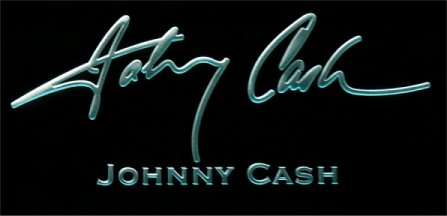
Press Section
Marshall Grant Obituary
Bass-player in Johnny Cash's original backing band
Ref: The Guardian ~ August 8, 2011

The rudimentary bass lines played by Marshall Grant, who has died of a brain aneurysm aged 83, formed a major part of the distinctive "boom-chicka-boom" rhythm that became Johnny Cash's trademark sound. Alongside the guitarist Luther Perkins, Grant was an original member of Cash's backing duo, the Tennessee Two, which later became the Tennessee Three, after the arrival of the drummer WS Holland in 1960. Grant remained an integral part of Cash's career until they parted ways in 1980.
Neither Grant, Cash nor Perkins were schooled musicians. Grant learned to play both the double bass and the electric bass: when he bought his first double bass, in 1954, he fixed adhesive tape at strategic points on the instrument's neck to mark where the notes were. "So many people think we took 10 years creating this style," he chuckled to the audience at a Cash tribute show in Nashville in 2003. "But it was there in the first eight bars we played, and we spent the next four years trying to get rid of it."
Grant grew up in Bessemer City, North Carolina, one of 12 children in his family. His early interest in music was sidelined by the need to learn a trade, which led him to serve as a mechanic. He married Etta May Dickerson in 1946, after which they moved to Memphis. By the time he first met Cash in July 1954, Grant was chief mechanic at the Automobile Sales Company, where both Perkins and Cash's older brother Roy also worked.
The trio began as a gospel outfit, but all that changed when they auditioned for Sam Phillips, the boss of Sun Records, in Memphis. Gospel records didn't sell, explained Phillips, who wanted something more rock'n'roll. Among the classic tracks they recorded for Sun between 1955 and 1958 were Cry, Cry, Cry; Folsom Prison Blues; I Walk the Line; and Hey Porter. Cash had written the latter while serving in the US air force in Germany. Together, they stripped it down, set it to an itchy rhythm and allowed Cash's stentorian voice to give it a raw thump.
By the late 1950s, they had signed to Columbia, where they recorded popular tracks including Ring of Fire and Man in Black and free-ranging concept albums such as Bitter Tears: Ballads of the American Indian (1964) and America: A 200-Year Salute in Story and Song (1972). They also cut Cash's two prison albums, recorded at Folsom and San Quentin prisons in 1968 and 1969 respectively. Throughout this time, Grant doubled as Cash's road manager, booking shows around the US and organising schedules.
Grant's clean-living provided the yang to Cash's notoriously self-destructive yin. At the height of his boss's amphetamine-driven craziness, the teetotaller Grant tried his best to keep things together. "Marshall was a solid, solid rock," Cash's daughter Rosanne remembered. "I can't imagine what would have happened on those tours without him. He understood how complicated my dad was, that he was a great artist who had real demons."
Grant and Cash's working relationship ended amid some acrimony in 1980, when the singer's long-standing drug problems led to a chain of disagreements that resulted in him firing Grant. Subsequently, Grant and the family of Luther Perkins, who died in a house fire in 1968, filed separate lawsuits against Cash for embezzlement of retirement funds. The matter was eventually settled out of court.
Grant and Cash later reconciled their friendship, with Cash admitting in his 1997 autobiography that sacking him was a huge regret. "I said things that should have been left unsaid and I think I made a bad situation worse," he wrote. "Marshall and I had been so close for so long and it was painful to have the rift between us like the one that followed."
Grant later managed a popular country act, the Statler Brothers, and detailed his life with Cash in his autobiography, I Was There When it Happened: My Life With Johnny Cash (2006). The Tennessee Two were inducted into the Musicians Hall of Fame in Nashville in 2007.
He is survived by Etta and his son, Randall.
• Marshall Grant, musician, born 5 May 1928; died 7 August 2011
© 2013 Guardian News and Media Limited